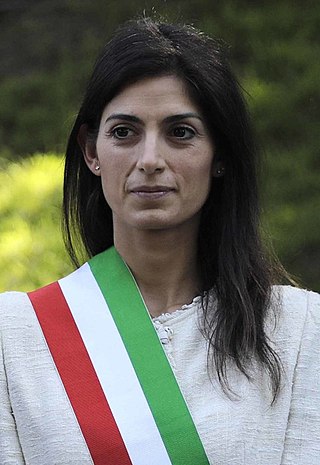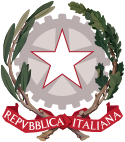Voting System
All mayoral elections in Italy in cities with a population higher than 15,000 use the same system.
Under this system voters express a direct choice for the mayor or an indirect choice voting for one of the parties of the candidate's coalition.
If no candidate receives a majority of votes, the top two candidates go to a second round two weeks later. The coalition of the elected mayor is guaranteed a majority of seats in the council with the attribution of extra seats, but the majority bonus system is not adopted by the cities of Trentino-Alto Adige. If a Mayor resigns, dies or is ousted from office after more than half the municipal councillors stepped down, an early municipal election (for the Mayor and for all municipal councillors) is called.
The City Council is elected at the same time as the mayor. Voters can vote for a list of candidates and can express up to 2 preferences for candidates of said list. In case of two preferences, they must be given to candidates of both genders. Seats are the attributed to parties proportionally, and for each party list the candidates with the highest number of preferences are elected.

The South Tyrolean People's Party is a regionalist and mostly Christian-democratic political party in South Tyrol, an autonomous province with a German-speaking majority in northern Italy. Dieter Steger has been party leader since 2024, while party member Arno Kompatscher has been governor of South Tyrol since 2014.

The Greens are a green political party active in South Tyrol, northern Italy. Once the provincial section of the Federation of the Greens, the party is now autonomous and often forms different alliances at the country-level, but both joined Green Europe, a coalition of green parties for the 2019 European Parliament election, and the Greens and Left Alliance, a coalition with Italian Left for the 2022 general election.

The 2011 Italian local elections were held on 15–16 May, with a second round on 29–30 May. In Italy, direct elections were held in all 1,177 municipalities and 11 provinces: in each municipality (comune) were chosen mayor and members of the City Council, in each province were chosen president and members of the Provincial Council. Of the 1,177 municipalities, 30 were provincial capital municipalities and only 105 had a population higher than 15,000 inhabitants.

The 2010 Italian local elections were held on different dates; most on 29–30 March concurrently with the Regional elections.

General elections were held in Italy on 24 and 25 February 2013 to determine the 630 members of the Chamber of Deputies and the 315 elective members of the Senate of the Republic for the 17th Italian Parliament. The centre-left alliance Italy Common Good, led by the Democratic Party (PD), obtained a clear majority of seats in the Chamber of Deputies thanks to a majority bonus that effectively trebled the number of seats assigned to the winning force and narrowly defeated the centre-right alliance of former prime minister Silvio Berlusconi in the popular vote. Close behind, the new anti-establishment Five Star Movement of comedian Beppe Grillo became the third force, well ahead of the centrist coalition of outgoing Prime Minister Mario Monti. In the Senate, no political group or party won an outright majority, resulting in a hung parliament.

The 2014 Italian local elections were held on 25 May, with a second round on 8 June. In Italy, direct elections were held in 4,086 municipalities: in each municipality (comune) were chosen mayor and members of the City Council. Of the 4,086 municipalities, 29 were provincial capitals and 243 had a population higher than 15,000 inhabitants.

Snap municipal elections were held in Rome on 5 and 19 June 2016, to elect the Mayor of Rome and 48 members of the City Council, as well as the fifteen presidents and more than 400 councillors of the 15 municipi in which the municipality is divided.

The 2016 Italian local elections were held on 5 June, with a run-off, where necessary if a candidate for Mayor obtained less than 50 percent of votes in the first round, held on 19 June.

The 2017 Italian local elections were held on Sunday 11 June. If necessary, a run-off vote was held on Sunday 25 June. The term of mayors and councils will last five years, unless an early election is triggered.

The 2018 Italian local elections were held on different dates; most on 10 June, with a second round on 24 June. In Italy, direct elections were held in 720 municipalities: in each comune were chosen mayor and members of the City Council. Of the 783 municipalities, 21 were provincial capitals and only 112 had a population higher than 15,000 inhabitants.

The 2019 Italian local elections will be held on different dates; most on 26 May 2019, together with the 2019 European election, with a second round on 9 June. Direct elections will be held in 3,843 out of 7,918 municipalities; in each of these, mayor and members of the City Council are going to be elected. Of the 3,841 municipalities, 30 are provincial capitals.

The 2020 Italian local elections were held on different dates; they were originally scheduled to take place in May 2020, together with the 2020 regional elections, with a second round on June, but they were delayed on 20 and 21 September with a second round on 4 and 5 October due to the coronavirus pandemic in Italy. Direct elections were held in 1,172 out of 7,904 municipalities; in each of these, the mayor and the members of the City Council are going to be elected. Of the 1,172 municipalities, 18 are provincial capitals.

The municipal elections in Naples took place on 3 and 4 October 2021. The incumbent Mayor of Naples was Luigi de Magistris of Democracy and Autonomy, who won the 2016 Naples municipal election.

The 2022 Italian local elections were held in various Italian local communities on 12 June 2022, with a run-off round on 26 June. Local elections in Trentino-Alto Adige/Südtirol were held on 15 May, with a second ballot on 29 May, while local elections in Aosta Valley on 29 May, with a second ballot on 12 June. Elections took place in 980 out of 7,904 municipalities, 26 of which were provincial capitals. Mayors and city councils were elected for the ordinary five-year terms, lasting till 2027.

The 2022 Italian general election took place on 25 September 2022. In Trentino-Alto Adige/Südtirol, 14 seats were up for election: 8 for the Chamber of Deputies and 6 for the Senate of the Republic.

The 2023 Italian local elections were held in various Italian local communities on 14–15 May 2023, with a run-off round on 28–29 May. Mayors of towns and cities across the country were elected.







